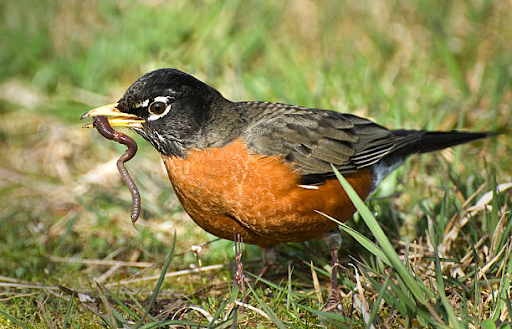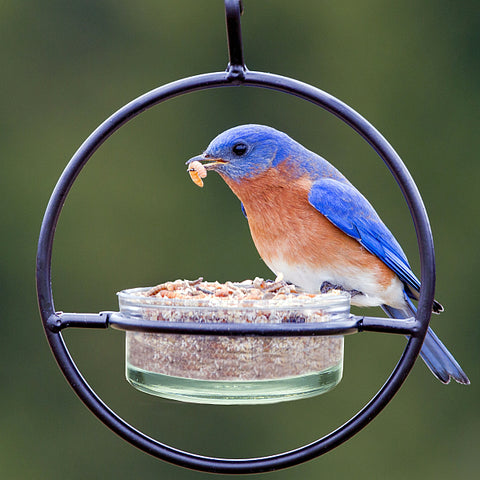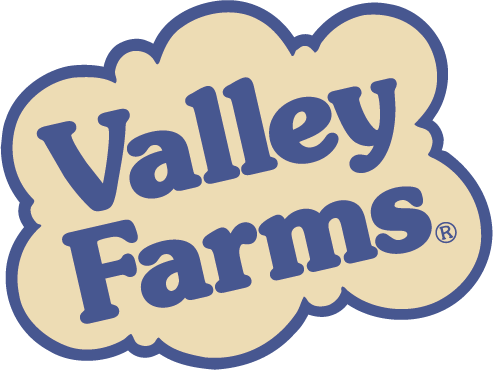
Vermivores Vs. Seedeaters: Who’s Who in the World of Wild Birds
Share

What’s on the menu tonight? That depends who you’re asking. Wild songbirds across North America have particularly varied diets. While some have a diverse palate, others stick to what they know and what their anatomy will allow. Among the many diets of wild birds are vermivores and seedeaters. You may think you know which species fall into which categories, but some of these might surprise you. Read on and prepare to get an education on bird eats!

Vermivores
The zoological term for animals that eat both worms and worm-like creatures is a vermivore. The word “vermivore” comes from the latin word “vermi,” which means worm and the word “vorare,” which means to devour. It’s no wonder worm-eaters are voracious in their nature. Don’t be fooled by the worm element, though; the term vermivore is not just reserved for animals who eat worms. A vermivore’s diet may include annelids (segmented worms), nematodes (roundworms), and insect vermin.
Why do Birds like Worms?
Birds like worms for their protein and easy availability. Ground feeders find that birds are particularly favorable to their feeding habits, as all they need to do is poke their bills into the earth to dig them out. While plenty of birds are vermivores, the way they go about seeking their prey varies. Some have needle-like bills that let them pick at worms with extreme precision. Others are a little more generalized and will gobble up just about any invertebrate they come across.

The Truth About Mealworms
Although most vermivores prefer fresh worms for their nutritious and flavorful profile, dead worms or freeze-dried mealworms will suffice if there is no other option. Fun fact: mealworms aren’t even worms at all! Instead, they’re actually darkling beetles in their larval stage. The reason mealworms are technically not considered worms is because they have 6 jointed legs, and worms by definition do not have legs. Still, they’re worm-like, which means that the birds that eat them still fall into the vermivore category.
Vermivore Bird Species
There are many wild bird species that indulge in worms, some of which include:
Woodpeckers. Insects, ants, mealworms, berries, nuts, and seeds tend to make up the bulk of a woodpecker’s diets.
Nuthatches. Despite being known for their affinity to tree nuts, Nuthatches are also fans of mealworms, insects, and spiders.
Robins. These birds are known for eating earthworms, beetles, caterpillars, snails, spiders, and other invertebrates.
Starlings. Known omnivores, starlings favor caterpillars, mealworms, and beetles, as well as fruits, vegetables, grains, seeds, legumes, and nuts.
Owls.Not only do owls eat earthworms, but they’ll also tap into snails, crabs, fish, reptiles, other birds, and small mammals if given the chance.
Bluebirds. It is well-known that bluebirds enjoy mealworms, whether dried or fresh. A word of caution: do NOT feed bluebirds earthworms. These beauties don’t have the digestive capability to handle them.

Bluebird eating a mealworm.
Photo credit:The Wood Thrush Shop
Seedeaters
Now we move onto seedeaters. These wild songbirds primarily subsist on seeds. The primary differentiator between seedeaters and vermivores is that these birds have the strong, conical bills necessary to crush seeds and access their “meat” for nutrients.
Seed-eating birds come in many forms, shapes, and sizes. While the majority of wild birds eat seeds, the types of seeds they eat and how they consume them varies greatly. Some of the most common seeds you’ll find in bird feeders include sunflower seeds, safflower seeds, nyjer, and millet. While straight bird seed can be great, seat-eating birds are also often fans of wild bird seed mixes. Keep in mind, however, that not all seeds are suitable for all birds. It’s therefore especially important to know the dietary preferences and constraints of the species you’re feeding before you fill your birdfeeder.
Common redpolls devouring birdseed
Photo credit: SC Times
Why do Birds Like Seeds?
What’s not to like about seeds? In addition to the taste and crunch, birds favor seeds for being a nutritious food source. Seeds provide wild birds with the energy they need to fly about, migrate, and maintain a healthy weight, which is particularly crucial during the cold winter months. Another benefit of seeds for birds is that they can be stored for later. Seedeaters employ a behavior known as caching, which involves stashing seeds in tree bark crevices, needle clusters, gutters, and other sneaky hiding places near bird feeders. Seedeaters do this as a “just in case” precaution to safeguard themselves in the event that food becomes scarce. Some birds like chickadees are able to not only remember where their caches are, but also where other animals’ caches that contain their favorite foods may be. Those are some smart songbirds! 
Seedeater Bird Species
Some of the most notorious wild bird species that fall into the seed-eating category include:
Finches. These birds are major fans of both sunflower seeds and nyjer, but they’ll also tuck into corn and millet.
Cardinals. In addition to berries, cardinals love black oil sunflower seeds, suet, Nyjer seed, safflower seeds, and sunflower hearts and chips.
Chickadees. The interesting thing about chickadees is that their diets change according to the seasons.While insects make up the bulk of their nutrition during the summer, chickadees turn into voracious seed-eaters come winter. You’ll find that most chickadee feed contains a mix of sunflower seeds and peanuts.
Redpolls. The small size of their bills makes nyjer seed and proso millet particularly favorable seed options for Redpolls.
Juncos. Their granivorous nature means Juncos will eat both grains and seeds. Some of their favorites include hulled sunflower seed, white proso millet, and cracked corn.

Dark-eyed Junco eating birdseed
Photo credit: Northern Kentucky Tribune
Valley Farms Natural Dried Mealworms 1LB
$19.95 $22.60 Save $2.65
Valley Farms Wild Finch Mix Wild Bird Food
$15.50
In the great big world of wild birds, you’ll see quite a lot of crossover between vermivores and seedeaters, as well as with birds that like to nosh on nuts, berries, corn, and other food sources. Lucky for them, Valley Farms® has all the wild bird feed they could possibly want and need. Fill your bird feeders with fresh and clean wild bird seed when you shop with us at Valley Farms®!


